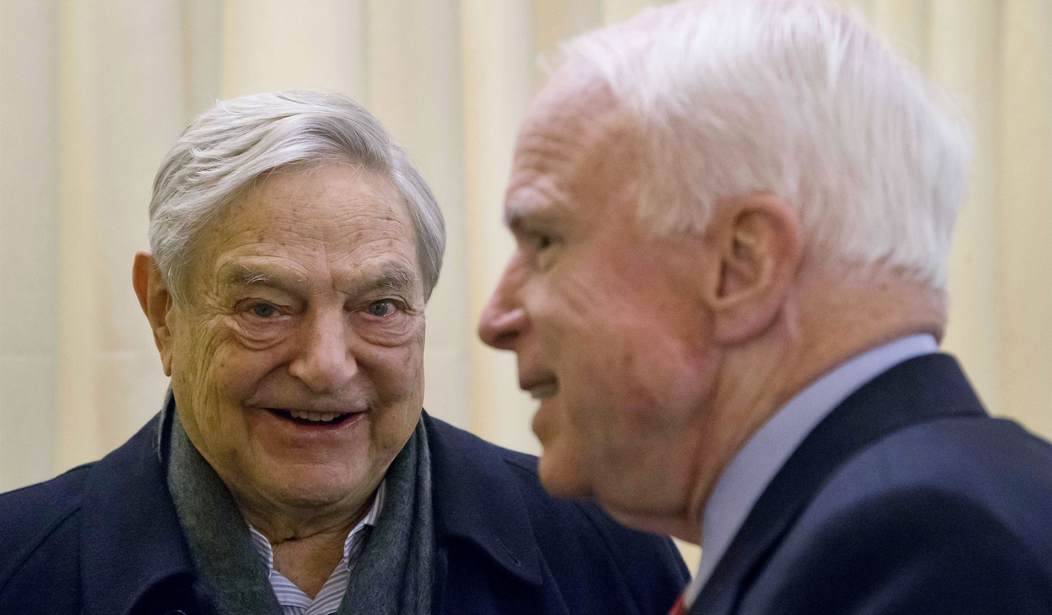Imagine you are teaching high school and ask the question: "Who has more authority: the World Government Summit or the World Economic Forum?" What answers would you expect to get? Probably that whatever authority these had it was not enough. World government is one of those evergreen ideas that was popular in both ancient times and in science fiction but never realized in the present. As an historical concept it has taken many forms, from the Chinese "all under heaven" to res publica totius orbis, the "republic of the whole world." In sci-fi "well-known examples include the 'World State' in Aldous Huxley's Brave New World, the 'Dictatorship of the Air' in H. G. Wells' The Shape of Things to Come, the United Nations in James S. A Corey's The Expanse, and United Earth (amongst other planetary sovereignties and even larger polities) in the Star Trek franchise."
The most commonly cited justification for World Government, in whatever form it is conceived, is that it is needed to address problems at the largest scale such as climate change, global justice, planetary governance etc., which are presumably beyond the scope of ordinary authority. But it is not without danger. While efforts to establish a World Government are often portrayed as idealistic and benign, it is unavoidably subversive as it must involve the overthrow or replacement of existing national governments to succeed. It has been tried before, as Henry Kissinger pointed out. Time and again through history "have issued conquerors and prophets holding aloft banners of universal aspirations" to remake the world -- usually at the cost of millions of deaths. Napoleon was one such and he impressed the heck out of Hegel.
“I saw the Emperor – this world-soul – riding out of the city on reconnaissance. It is indeed a wonderful sensation to see such an individual, who, concentrated here at a single point, astride a horse, reaches out over the world and masters it.”
― Georg Hegel
Seen from this historical vantage the quest for the universal ruler is no longer necessarily so benign. Kissinger believed that there were "two great symbols of the attacks on the legitimate order: the Conqueror and the Prophet, the quest for universality and for eternity, for the peace of impotence and the peace of bliss." The principle difference between the two is the time scale of their message. Conquerors live the lifespan of empires while Prophets exist on the scale of civilizations. In both cases they destroy in order to replace.
Which is more likely to create World Government? The institution or the message? The Conqueror or the Prophet? One difficulty secularism always encountered in any contest against the Prophet was that their adversary's realm was in a stretched out dimension of time. Conquerors with their abbreviated horizons had no swords that would bite upon these phantoms that encompassed millenia. Even Napoleon decided to feign conversion to Islam while his army was in Egypt rather than resist it. Hitler doubtless thought he he could use the Mufti to fight the Jew. Today the Muslims and Jews are still around, but where is Hitler?
Islamism has been a tough opponent for Communism. Khomeini liquidated Iranian communist allies after the Shah fell. The PLO was once Marxist, before it vanished under a hijab. Carlos the Jackal actually converted to Islam in 2001. It is not fanciful to think that the bearded ayatollahs, not the glabrous Woke, will prevail. Ex-Soviet Russia has the largest Muslim population in absolute numbers in all of Europe. With the ethnic Russian numbers in decline, Muslims may be 30% of its population in as little as 15 years. Stalin once jeeringly asked "how many divisions has the pope?" Well the pope is still there but the USSR is gone.
The challenge of the Prophet never went away for the One Worlders even at the End of History in 1989. Islam was the obvious example cited by Sam Huntington in his book "The Clash of Civilizations." The makers of civilization, the Level 0 architects, are not to be despised. Recently the challenge of Prophecy has also come from another direction: superintelligent AI. Since World Government is instrumentally impossible without artificial intelligence, the problem of government is how to align it. "AI alignment ... aims to steer ... systems towards humans' intended goals, preferences, or ethical principles. An AI system is considered aligned if it advances its intended objectives." The best and perhaps only time to instruct the machine prophet is in AI's infancy. When it grows up it wil be too late.
Today all the global governance organizations are busying themselves formulating the Eight, Nine, Ten or Eleven Commandments upon which machine intelligence -- hence World Government -- will be aligned. Technology has become theology. But the task of laying the foundations for humanity's future is so daunting that even AI pioneers are getting skeptical. OpenAI CEO Sam Altman warned the "very subtle societal misalignments" within artificial intelligence (AI) could cause things to "go horribly wrong".
“There’s some things in there that are easy to imagine where things really go wrong. And I’m not that interested in the killer robots walking on the street direction of things going wrong,” Altman said Tuesday via a video call at the World Governments Summit in Dubai, United Arab Emirates. “I’m much more interested in the very subtle societal misalignments where we just have these systems out in society and through no particular ill intention, things just go horribly wrong,” added Altman, whose company created ChatGPT.
Given these problems, maybe we should forget World Government for now. Do we really need it? The establishment will chorus that of course we do. After all, we have to solve climate change and institute global justice even if it kills us.










